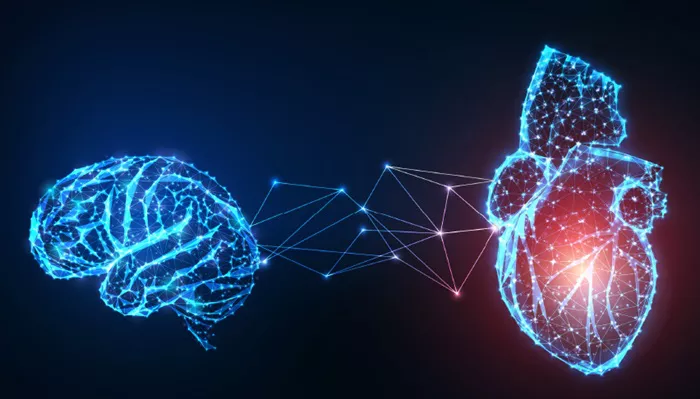Low blood pressure, also known as hypotension, is a condition in which blood pressure falls below the normal range of 90/60 mm Hg.
While often perceived as less harmful than high blood pressure (hypertension), hypotension can lead to significant health issues and impact overall well-being. Understanding the problems caused by low blood pressure is crucial for managing the condition effectively.
Symptoms of Low Blood Pressure
Low blood pressure can present with a variety of symptoms, which may vary in severity. Common symptoms include:
Dizziness and Lightheadedness: One of the most frequent complaints, dizziness occurs due to insufficient blood flow to the brain, leading to feelings of unsteadiness or faintness.
Fainting (Syncope): In severe cases, hypotension can cause a person to faint due to a sudden drop in blood flow to the brain.
Blurred Vision: Reduced blood pressure can impair vision, causing temporary blurriness.
Nausea: The brain’s reaction to inadequate blood flow can include nausea or a general feeling of being unwell.
Fatigue: Persistent low blood pressure can result in chronic fatigue, as the body and brain are not receiving adequate oxygen and nutrients.
Lack of Concentration: Hypotension can impair cognitive function, making it difficult to concentrate or focus on tasks.
See Also: what’s good to lower blood pressure right away
Causes of Low Blood Pressure
Several factors can contribute to low blood pressure, including:
Dehydration: Insufficient fluid intake or excessive fluid loss can reduce blood volume, leading to hypotension.
Heart Problems: Conditions such as bradycardia (slow heart rate), heart valve issues, or heart failure can reduce the heart’s ability to pump blood effectively.
Endocrine Disorders: Hormonal imbalances, such as those seen in Addison’s disease or low blood sugar, can impact blood pressure regulation.
Severe Infection (Septicemia): Severe infections can cause a drastic drop in blood pressure, leading to septic shock.
Blood Loss: Significant blood loss from injuries or internal bleeding reduces blood volume, resulting in hypotension.
Nutritional Deficiencies: Lack of essential nutrients like vitamin B12 and folate can cause anemia, which in turn can lower blood pressure.
See Also: what causes stage 3 hypertension
What Problems Can Low Blood Pressure Cause?
Falls and Injuries: Dizziness and fainting caused by low blood pressure can increase the risk of falls and related injuries, particularly in older adults.
Shock: In cases of severe hypotension, the body’s organs may not receive enough blood flow to function correctly, leading to shock. This is a medical emergency that requires immediate attention.
Heart and Brain Damage: Chronic low blood pressure can deprive the heart and brain of oxygen, potentially leading to long-term damage and functional impairments.
Complications in Pregnancy: Pregnant women with hypotension may experience inadequate blood flow to the placenta, affecting fetal development and increasing the risk of complications.
Cognitive Impairment: Persistent hypotension can lead to cognitive decline and increase the risk of conditions such as dementia.
Managing Low Blood Pressure
Effective management of low blood pressure involves addressing the underlying causes and implementing lifestyle changes.
Here are some strategies to manage hypotension:
Stay Hydrated: Drinking plenty of fluids can help maintain blood volume and prevent dehydration-related hypotension.
Eat Small, Frequent Meals: Large meals can cause blood pressure to drop after eating, so consuming smaller, more frequent meals can help maintain stable blood pressure levels.
Increase Salt Intake: Sodium helps raise blood pressure, but this should be done under medical supervision to avoid excessive intake.
Wear Compression Stockings: These can help improve blood flow and reduce the pooling of blood in the legs, which can cause hypotension.
Avoid Sudden Position Changes: Standing up too quickly can cause a drop in blood pressure, so it’s important to rise slowly from a sitting or lying position.
Medications: In some cases, doctors may prescribe medications to help regulate blood pressure. These might include drugs to increase blood volume or constrict blood vessels.
When to Seek Medical Attention
It’s important to seek medical attention if you experience symptoms of low blood pressure, especially if they occur frequently or severely.
Prompt medical evaluation can help identify the underlying cause and prevent complications. Additionally, seek immediate care if you experience signs of shock, such as confusion, cold and clammy skin, rapid breathing, or a weak pulse.
Conclusion
While low blood pressure is often viewed as a benign condition, it can lead to significant health problems if not properly managed. Recognizing the symptoms and understanding the potential complications are essential for maintaining overall health and preventing serious outcomes. By addressing the causes and making appropriate lifestyle adjustments, individuals with hypotension can lead healthy, active lives. If you experience persistent or severe symptoms, consult with a healthcare provider to develop an effective management plan.

